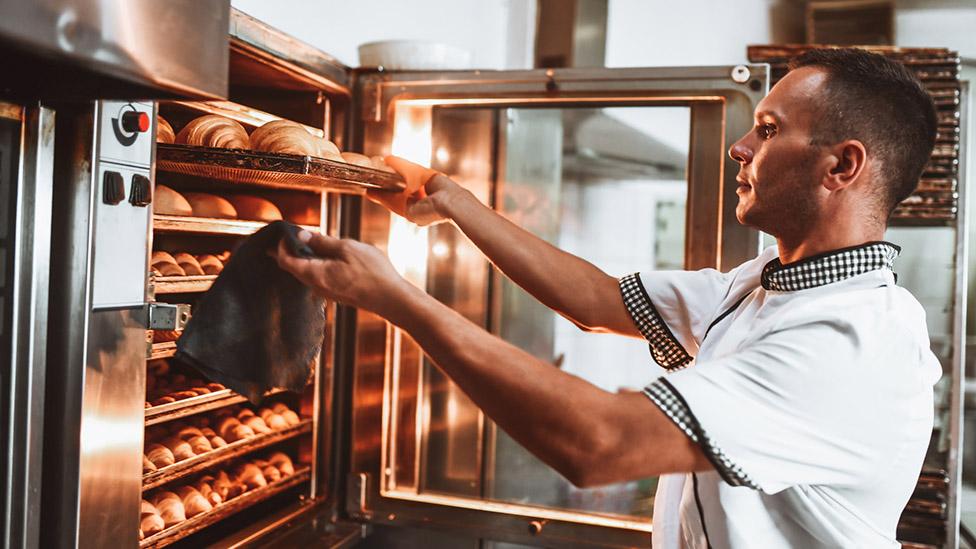U-turns and Westminster turmoil 'cost me business'
- Published
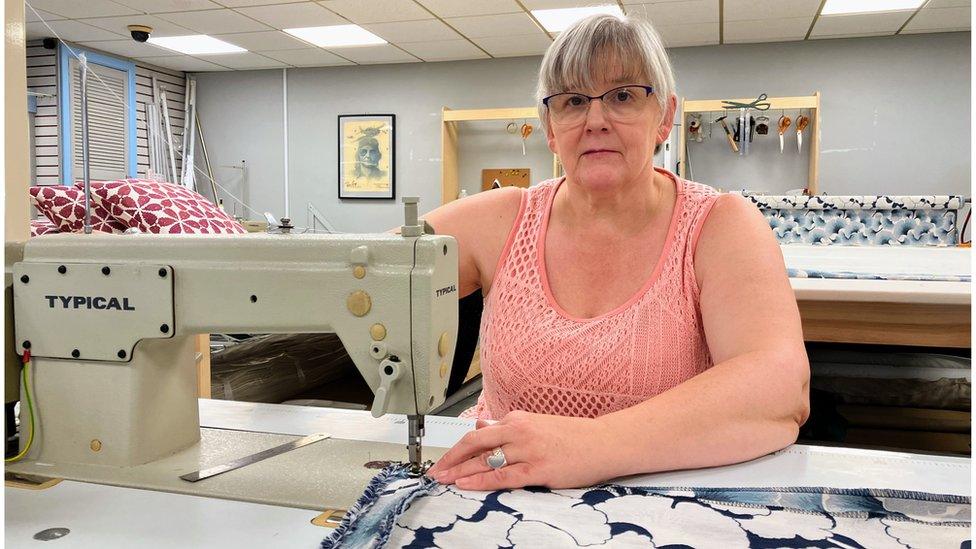
Mandy Jarman has had customers cancel curtain orders during the political upheavals
Political in-fighting and government U-turns have made customers cancel big orders, according to a family curtain-making business.
Mandy Jarman has been making curtains in Weston-super-Mare for 20 years, but has had more cancelled orders in the past few weeks than ever.
She said the political turmoil had made customers "scared to spend money".
A Somerset business group has found widespread cancellations hitting local firms after the changes in government.
Mandy said: "It's the unnecessary luxury market, curtains, flowers, sofas, that is dying."
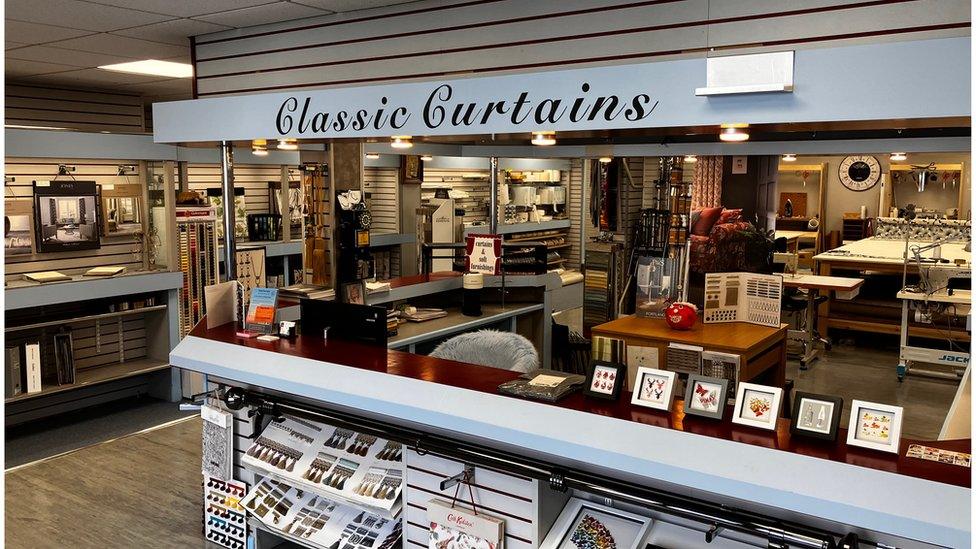
She has been making curtains for 20 years in Weston-super-Mare
Her elegant, quiet workroom seems a world away from Westminster.
She sits quietly at her sewing machine, or moves round large tables measuring out fabric for a big set of new curtains.
But the noise from SW1 has reached the seaside town where she has worked her whole life.
Five customers have cancelled orders. All face rising bills for gas, electricity and food.
One couple decided they had to help their daughter pay her mortgage after interest rates rose sharply.
'What's the point?'
It is an example of how the policy decisions at Westminster ripple through this coastal town.
But a much bigger factor recently has been the constant changes of direction.
When Jeremy Hunt was brought in as the new chancellor, he reduced the government's help with household energy bills.
Instead of capping prices for two years, the Energy Price Guarantee will only run until April. Then a new scheme will come in, targeted to help those he called "the most vulnerable".
The World Bank has warned it is too expensive for governments to help everyone with their soaring energy bills and research suggests the UK's energy support scheme is far too expensive in its current form.
Politicians can argue the merits of the change, but in Mandy's showroom the immediate reaction was another cancelled order.
Mandy said: "What's the point of saying we're going to do this to help you, and then three weeks later a new chancellor comes along and says 'sorry, we're not doing that any more'.
"People don't know what's going on, so they're holding on to their money now."
Of course, it is not only curtains being cancelled.
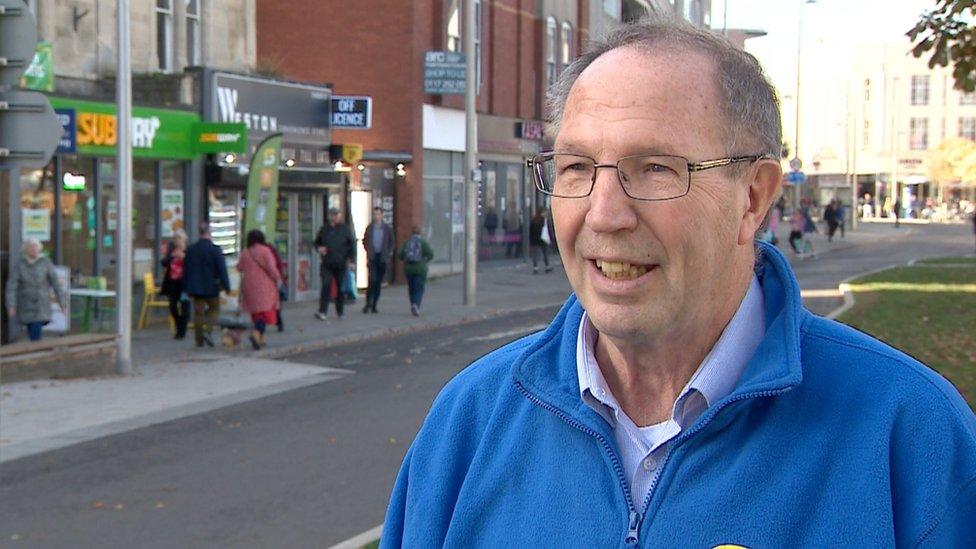
John Mayer runs the Federation of Small Businesses in North Somerset
In the middle of Weston, I meet John Mayer. He is a tax accountant who also runs the local Federation of Small Businesses.
He said he has been hearing the same complaint again and again.
"One thing businesses hate is uncertainty", he said.
"And they've been through a lot recently, changes in prime minister, changes in chancellor, changes in policy.
"We just need some stable government now, and no more changes please."
Vernon Bogdanor, professor of government at King's College in London, said Brexit had also played a part in causing instability.
"The referendum has destabilised British politics," he said.
In the UK inflation is at a 40-year high of 10.1% and some retailers here have already had to shut up shop.
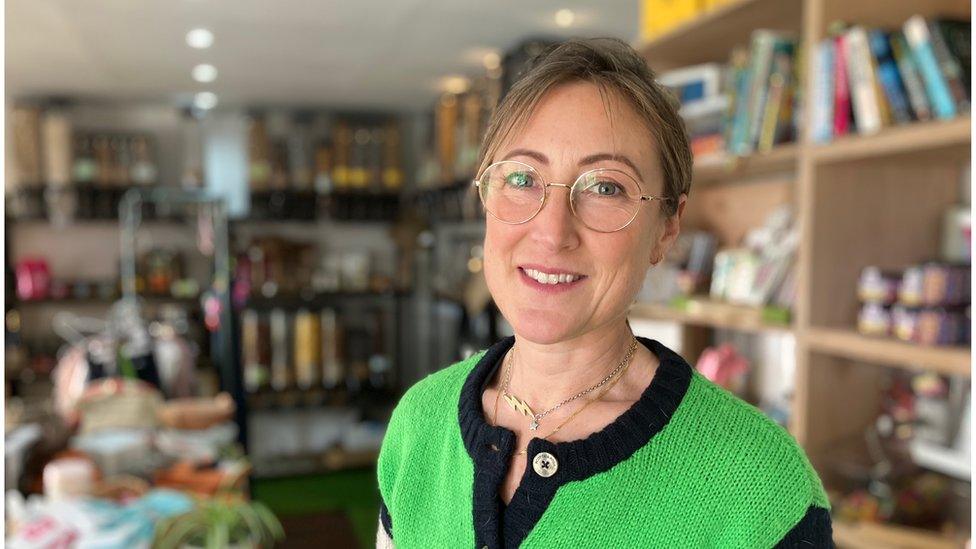
Claire Morris opened a zero-waste eco store, but has been hit by rising energy bills
I first met Claire Morris back in the depths of Covid lockdowns. She had a small cafe in the middle of Weston, except it was closed like everyone else's in the pandemic.
She decided to change the business, offering the town its first zero-waste refill shop.
Good and Proper Zero sold pasta and cereals, shampoos and laundry liquid.
They were all eco-products designed for people to bring their own containers and cut packaging waste.
As an entrepreneur she was not one to sit and wait for government help.
But when I popped into her shop, she told me she had decided to pack it in.
Claire will close on Christmas Eve.
"To be honest it's a relief to have made the decision," she explained.
"The bills have just been mounting up."
Her electricity bill has gone from £200 a month to £800 in the past 18 months.
From December, she will lose the last bit of post-Covid help with business rates, and will have to pay the full rate.
"Energy and business taxes are just too high. It makes no sense to have a shop any more."
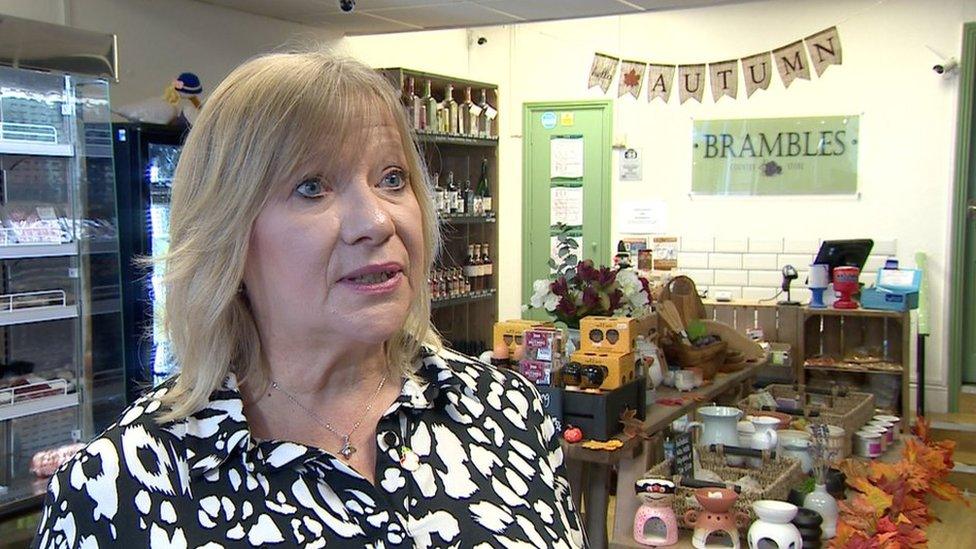
Loraine Rogerson has had to close her country food store in Clevedon, North Somerset
Up the coast in Clevedon, North Somerset, Loraine Rogerson knows just what she means.
She started her local food store with her husband and daughter, showcasing the best meat, dairy, preserves and beers from North Somerset.
Even as people have tightened their belts and shopped more carefully, her customers have kept coming.
Iris Wheatley is in there buying some Somerset beef for dinner. "It's a bit pricier, yes," she acknowledges, "but it's so much better tasting".
But Loraine is closing her shop down too.
Why? Energy prices again.
"My electricity bill has gone from £600 a month to £1,200," she said.
"And that's with the government cap in place. What happens next year when it goes? I can't afford it."
No further announcements have been made yet about The Energy Bills Relief Scheme that applies to businesses.
Like Claire Morris, Loraine Rogerson is a practical, energetic businesswoman. She will start something else.
But she says she can not plan what to do yet.
"We've got another new PM, we'll have yet another budget. We can't make any decisions until they do."

Follow BBC West on Facebook, external, Twitter, external and Instagram, external. Send your story ideas to: bristol@bbc.co.uk , external
- Published26 October 2022
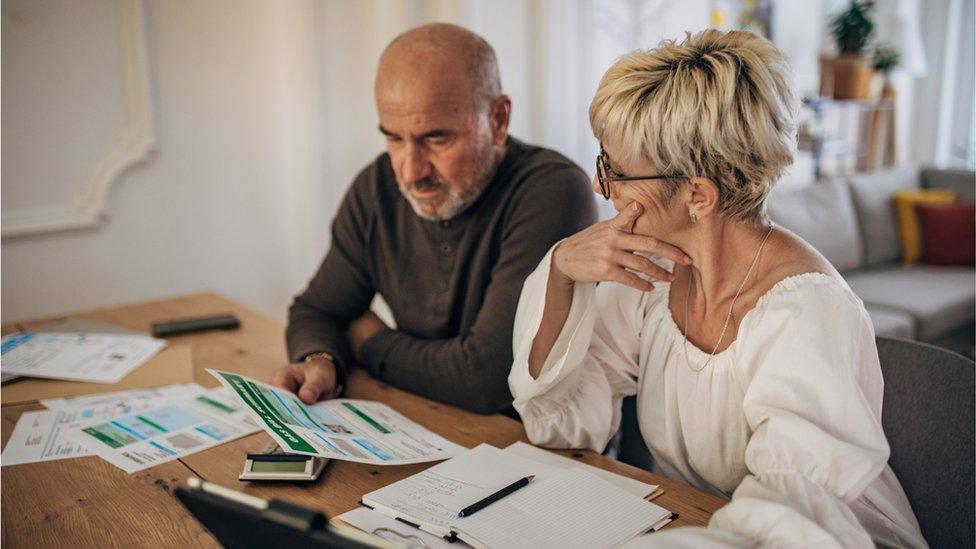
- Published19 October 2022
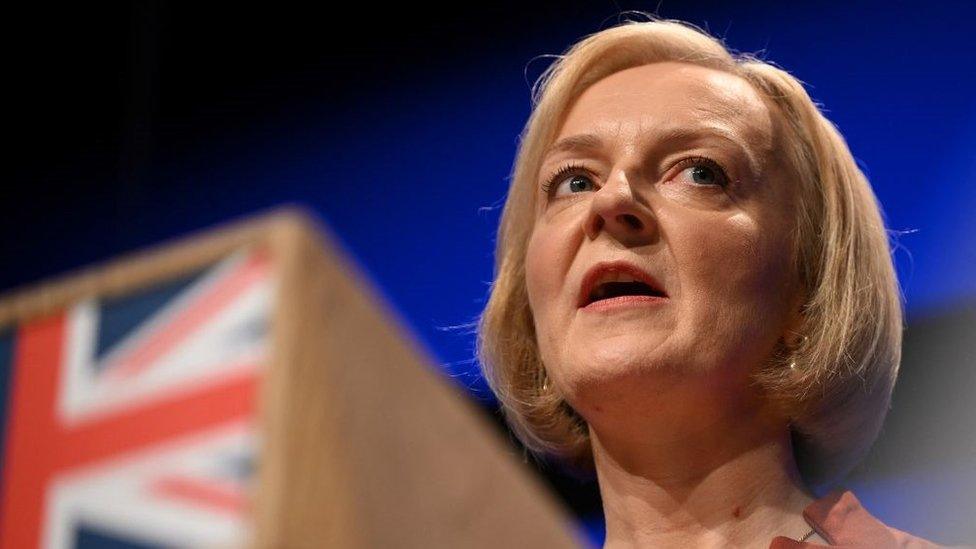
- Published21 September 2022
